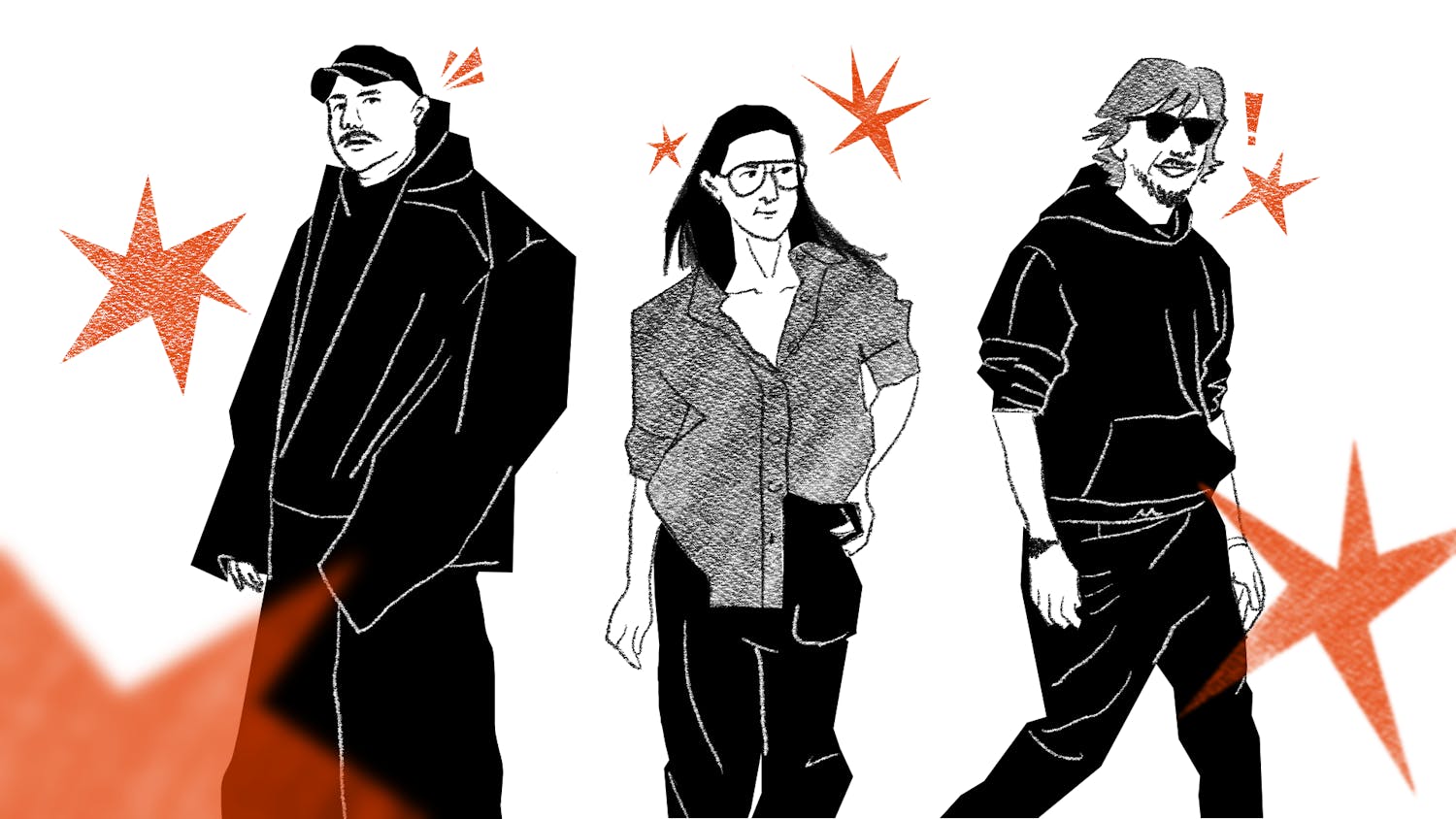Content warning: The following text details the writer's struggle with depression and anxiety, which can be disturbing or triggering for some readers. Please find resources listed at the bottom of the article.
I'm sitting in an artsy, Christmas–decorated coffee shop in Wilton, Connecticut, two days after Thanksgiving. As I work on graduate school applications, I’m reminded of a year and a half ago.
I order a spiced brown sugar latte, a new adjustment for my pumpkin–spice–loving self. The last time I was here, it was the end of winter rather than the beginning, and I had a snickerdoodle flavored drink. On that freezing day in March of 2020, hours after finding out I wouldn’t be finishing my sophomore year at Penn in person, I sat in a booth a couple feet down, filling out transfer applications.
This wouldn’t have been my first time transferring. I’m actually a transfer student at Penn, having spent my first year at Emory University in Atlanta. Despite loving the Emory community, I left because I wanted better research opportunities. Emory didn’t exactly suit my needs, and after a summer of anxious indecision, I ended up going to Penn.
As soon as I stepped onto Locust Walk, I thought I’d made the wrong decision.
I remember crying in the shower of my parent’s hotel room that first night. Then, crying for the entire first week as I moved into my 23rd floor room in Harnwell College House, which I shared with an exchange student from the United Kingdom. Even calls to my parents and FaceTimes with my friends couldn’t change the utter anguish I felt that I’d somehow done something terribly wrong.
Whereas Emory had been a warm safe haven, my room at Penn felt cold and lonely. I knew nobody. I was 23 floors above a bustling city with no idea of what I was doing or who I could turn to.
I waited for things to get better because that’s what everyone said to do. People told me that transition was tough, but once you worked your way through it, you’d find your home. But I was impatient and wanted things to change immediately. I went to CAPS and joined as many clubs as I could in my desperation to find a community.
Unfortunately, things didn’t get better. Advice to be patient felt like taunts. Most of the clubs I joined seemed superficial and disconnected. I quit most of the clubs, then joined new ones in the spring semester. I even applied to change dorms, trying to find one with a better community. I moved to Stouffer College House, thinking it would solve all my problems, but it exacerbated them.
By the time mid–March rolled around, I was an absolute mess. I’d had depression since middle school and panic attacks since my first year of college. Both came down upon me like vultures hungry for paralyzed prey. The week before spring break 2020 was the lowest I’d ever felt in my life. Every night, I’d walk to the Penn hospital, thinking they could help, and I would always stop just before the door. One morning, I even called Student Health Services in desperation. I told my mom I needed to come home immediately. I wasn’t eating, and I didn’t think I could survive much longer like this. I was a ghost walking around a campus that didn’t know I existed.
When I went home for spring break, I began to research mental rehabilitation facilities. I hadn’t been able to fix myself. CAPS hadn’t been able to fix me. And I didn’t think I could go on without extreme mental health support. I sat on my bedroom floor sobbing as I tried to piece together how to move forward.
Two days later, I got the news that I wouldn’t be returning to Penn.
Lockdown seemed like something that would excite me, as I’d been suffering so much with in–person classes. Instead, it made me hopeless. How could I find a community from home? On top of that, I had begun to focus on one solution to my problems: transferring out of Penn, and, theoretically, back to Emory or somewhere I could be happy. I was planning to give Penn one last chance during the spring semester. Without that, I was even more lost in making a decision.
What I hadn’t foreseen was how being home would change everything.
I worried each day about my transfer applications and panicked that I was about to make another horrible decision. But each night, I sat down and ate dinner with my family. With nothing else to cure my boredom, I went on walks and wrote. I played Wii games I hadn’t opened since elementary school. I hugged my dog goodnight and opened my door in annoyance when he scratched at it at six in the morning.
Slowly, but surely, I felt myself coming alive again.
I looked into Penn clubs online. The Social Deduction Club continued to have Zoom meetings every Friday at 7 p.m. I told myself I’d go to those every single week. And I did.
Two weeks after my dad brought me home, I remember staring out my bedroom window at the barren trees and light blue sky. For the first time in eight months, I felt happy again.
From that point on, things got better. I created a checklist every day of self–care things to do: drink water, get sleep, eat three meals, go on a walk, and read at least one book chapter a day. I stayed awake until almost 4 a.m. playing Mafia with the Social Deduction Club every Friday. I joined the group's Discord and met even more people from all over the world. I spent nearly every night in my basement talking to people online. I finally felt like I belonged.
Although it sounds ridiculous, it took moving off campus for me to find my on–campus community.
I'm so glad I didn't transfer. Today, I love Penn. I love playing Mafia every week in Houston Hall. I love long, spontaneous conversations with my friends at 2 a.m. I love the Physics Department and the research I’ve gotten to do with Penn’s professors.
But I still remember my horrid sophomore year. Sometimes, when I’m alone at night, the feelings come flooding back. Other times, I’ll run into another student who’s where I used to be. Somebody who tells me that they struggle with finding their place here. That they want to leave. That they don’t know what to do.
When I look in their eyes, I see myself a year and a half ago. I see them wanting to say more, about how much it hurts them every night to go to bed alone, to stare down at a city and feel like it wouldn’t notice if they disappeared. I want to tell them that I know how they feel, and that I’ve been through it, too. I want to give them a solution to all of their problems so they can end up in my shoes. But sadly, I don’t have one.
And so, I tell them the same thing people used to tell me: to hang in there. To have hope. To know that there are people here who are happy. To know that it’s possible to be happy again.
So, to those who are struggling to find friends or a community: It’s stupid and cliché and cheesy, but things do get better. I won’t tell you that you shouldn’t transfer out, because perhaps that is something that would help you. I can’t tell you how long it’ll take to be happy, but there will come a day when all this is behind you. And there’s no shame in going home for a bit, finding yourself again, and taking things slowly. Penn can wait.
Campus Resources:
The HELP Line: 215-898-HELP: A 24–hour–a–day phone number for members of the Penn community who seek help in navigating Penn's resources for health and wellness.
Counseling and Psychological Services: 215-898-7021 (active 24/7): The counseling center for the University of Pennsylvania.
Reach–A–Peer Hotline: 215-573-2727 (every day from 9 p.m. to 1 a.m., texting available 24/7): A peer hotline to provide peer support, information, and referrals to Penn students.
Penn Women's Center: 215-898-8611 (Monday–Thursday 9:30 a.m.–6:30 p.m., Friday 9:30 a.m.–5 p.m.): PWC provides confidential crisis and options counseling.







